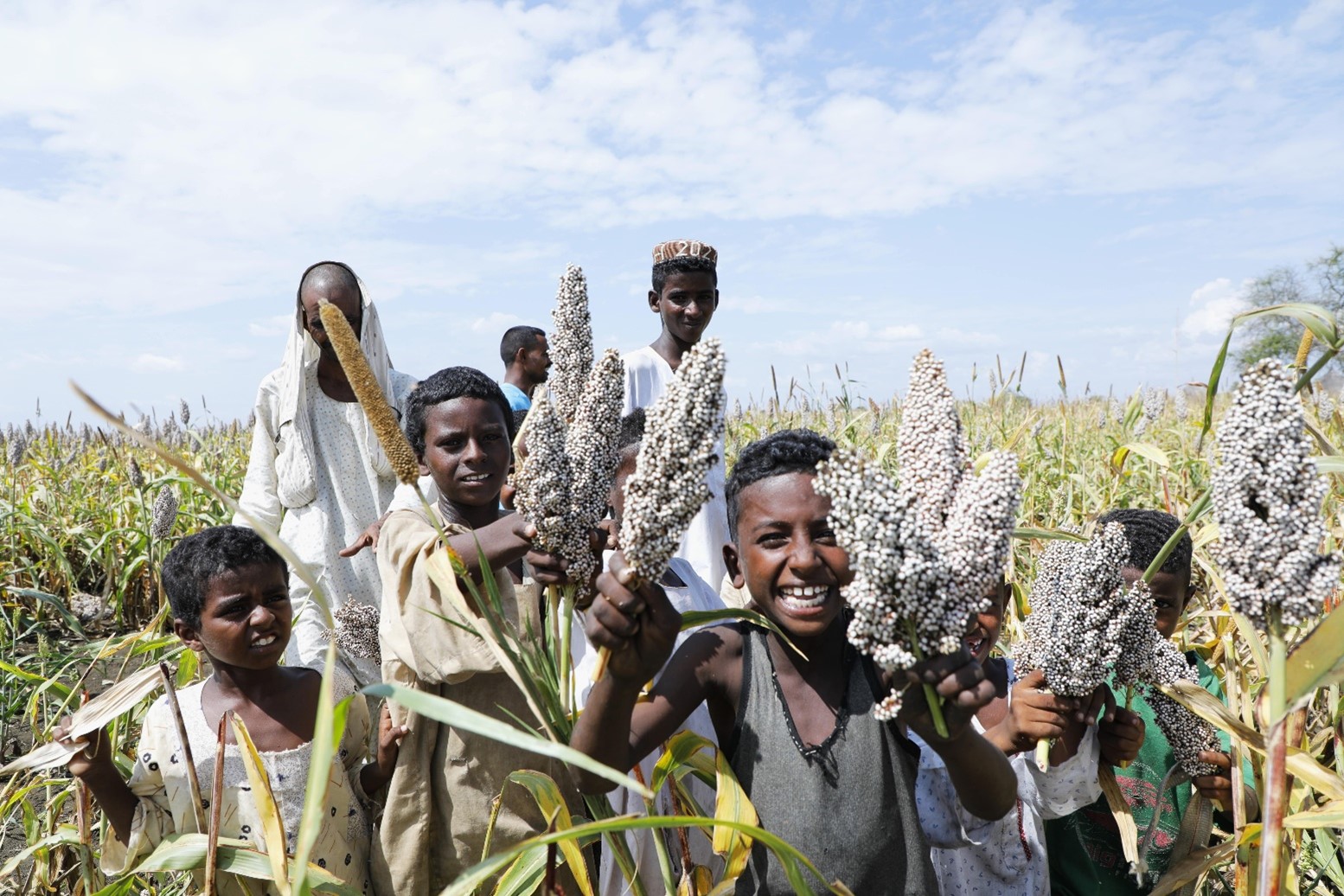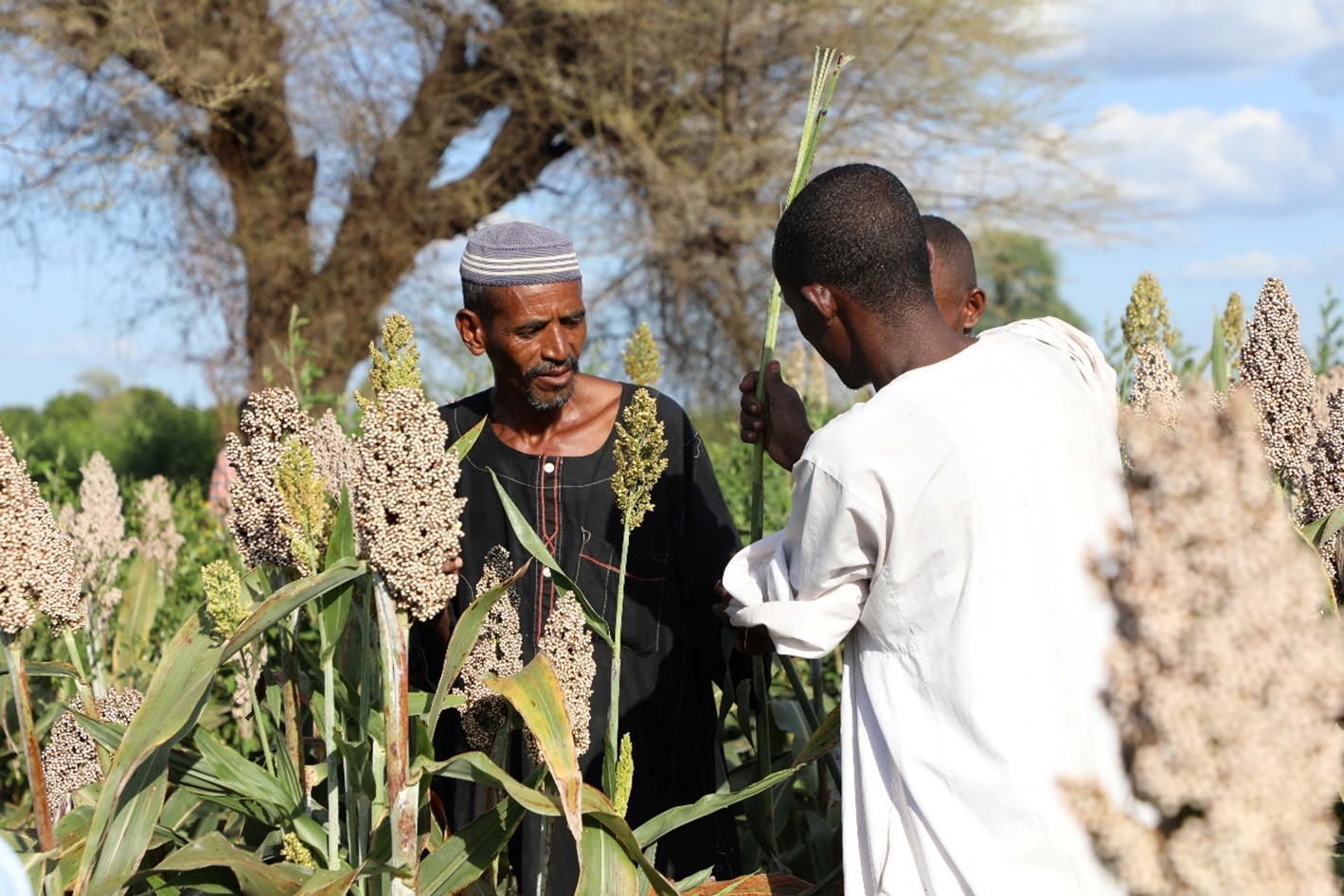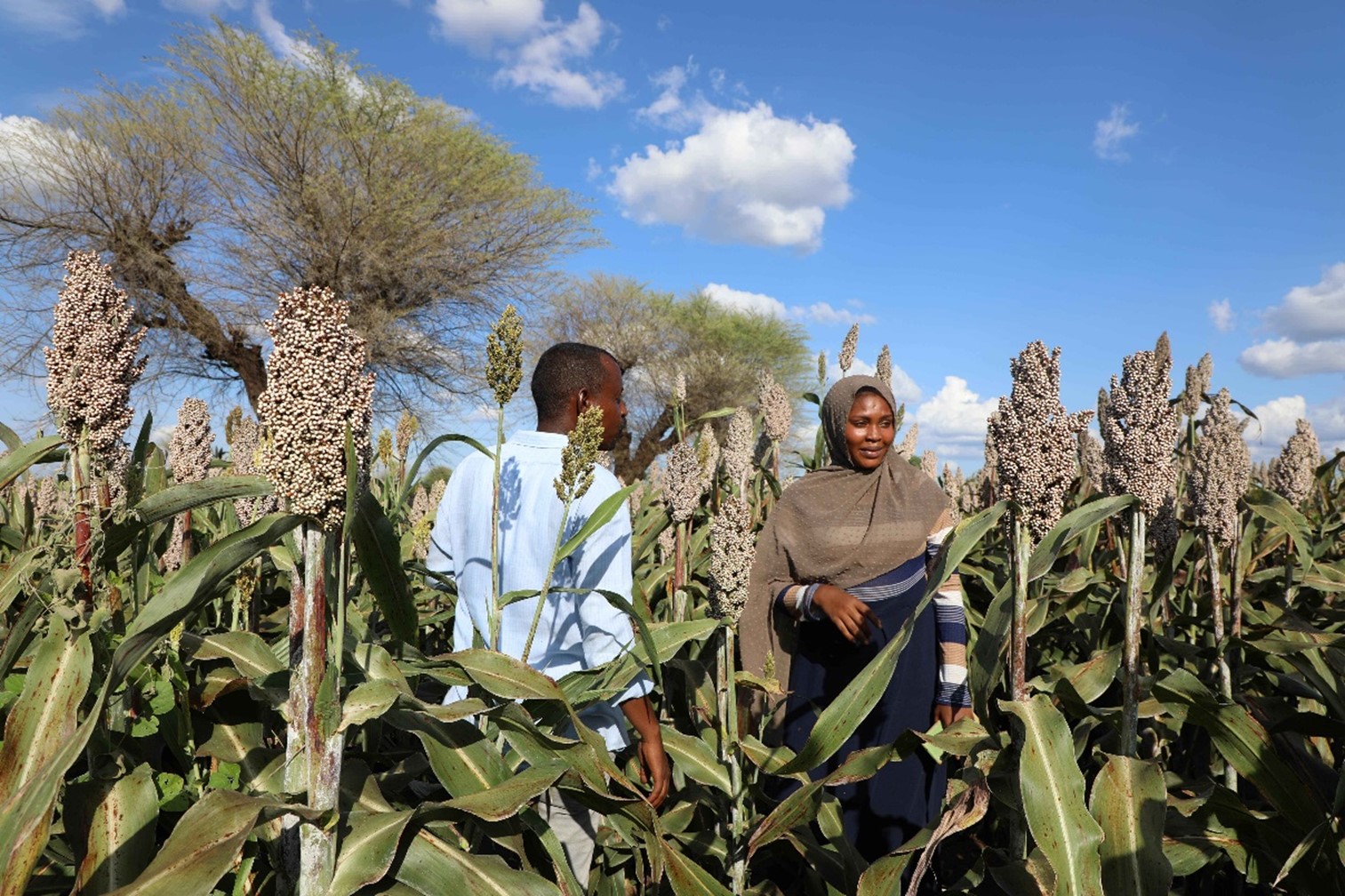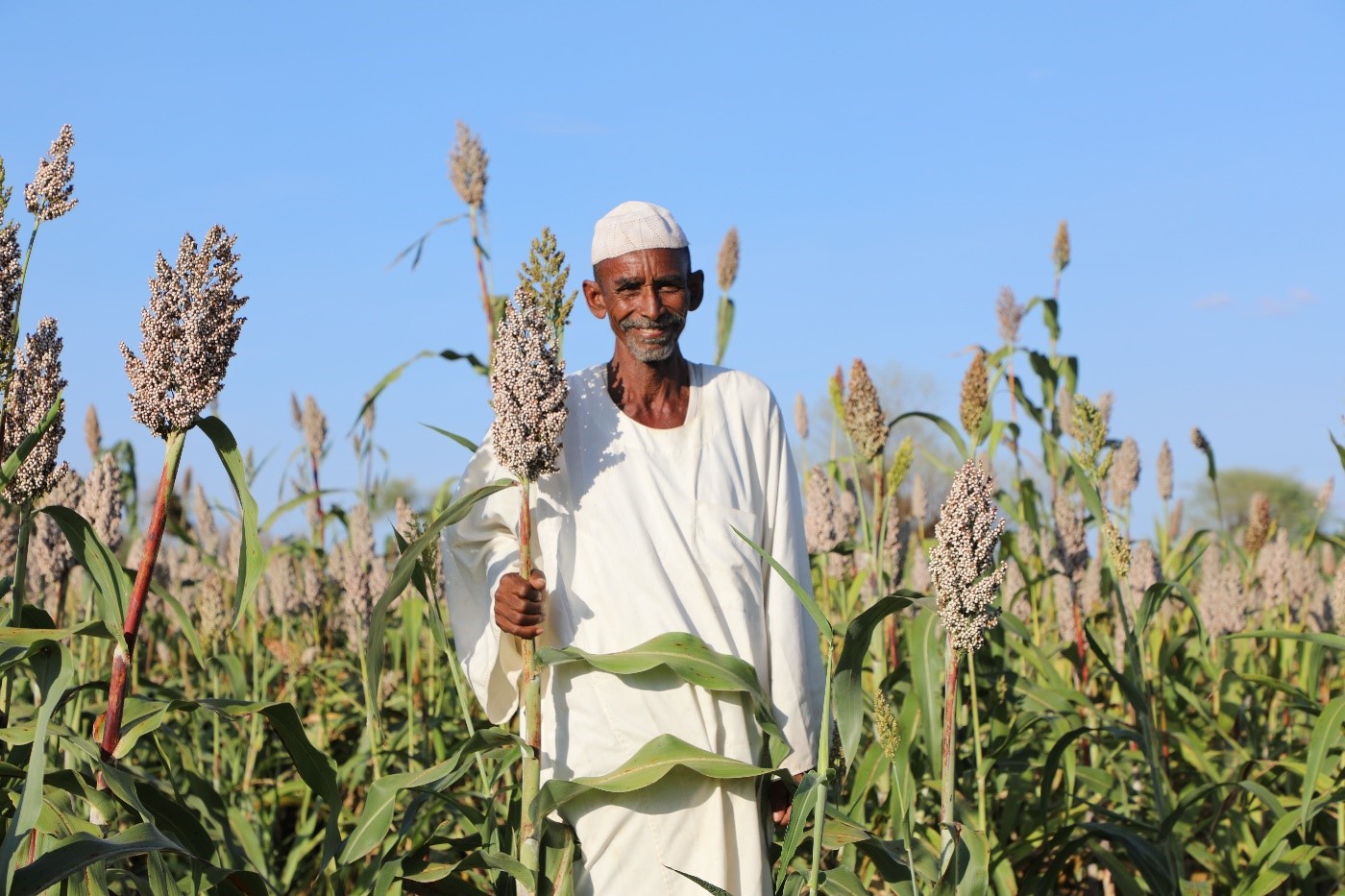Sudan's Sorghum Joins FAO's One Country One Priority Product (OCOP) Global Initiative

©FAO/Khalid Ali
In a significant step towards rural transformation, Sudan has officially joined FAO's "One Country One Priority Product" (OCOP) global initiative as its 95th member. Its traditional crop, sorghum, has been designated as a country-specific Special Agricultural Product (SAP). This decision is set to empower millions of Sudanese farmers and foster a more sustainable food value chain.
Golden grains of the desert: Sudan’s millennial bond with sorghum
Archaeological evidence shows that Sudan, one of the origins of sorghum, has a history of more than 5,000 years of cultivation. This heat- and drought-tolerant crop is integral to Sudan’s heritage. Sudan’s tropical savannah climate and sandy soil provide an ideal growing environment for sorghum.
As the most important staple food in Sudan’s semi-arid regions, sorghum can maintain stable production in extreme environments and sustain the livelihoods of the poorest rural population. Its unique advantages include:
- Highly drought-resistant: Thrives in rain-fed systems with minimal water requirements, suitable for 90% of Sudan's arable land
- Low input crop: Requires minimal fertilizer, with early maturity allowing harvest in approximately two months
- All-climate adaptable: Existing varieties cover both irrigated and rain-fed systems, with export potential
- Economic and food security asset: Low-cost cultivation and short production cycle make it a cornerstone for food security in times of conflict
In 2011, Sudan's sorghum harvest reached 4.6 million tonnes, far exceeding domestic consumption of 4 million tons, and the surplus was even available for export.

Bread of life: Sorghum's central place on Sudanese tables
As the staple food of more than 40 million people, sorghum occupies a high position in the Sudanese diet. The traditional flatbread "kisra," made from sorghum, is a dietary cornerstone. Sorghum's value extends beyond basic sustenance; in resource-scarce refugee camps, it serves as a vital means to obtain protein by exchanging it for meat. This resilient grain demonstrates remarkable vitality, not only withstanding harsh climates but also converting into life-sustaining energy.
Sorghum in crisis: The impact of conflict
The ongoing conflict since April 2023 has severely impacted Sudan's food security. 27 regions in Sudan are at risk of famine, and more than 24.6 million people are in a state of "severe food insecurity", accounting for nearly half of the country's population. In Darfur, affected people have reportedly begun to use grass and peanut shells for food.
Sorghum prices have become a microcosm of inflation: in September 2024, Sudan's sorghum prices soared 371% year-on-year, and the overall food basket price rose 237% year-on-year. The conflict not only destroyed farms and granaries, but also cut off the traditional food circulation.
The total output of sorghum, millet and wheat in 2023 was only about 4.1 million tons, a year-on-year decrease of 46% and 40% lower than the average level of the previous five years. In Darfur, Kordofan and Khartoum, where the conflicts are most intense, farmlands have become battlefields and granaries have been reduced to ashes.

Sowing hope: FAO's emergency response
FAO has been at the forefront of relief efforts. In 2023, between July and September, the organization distributed nearly 10,000 tonnes of seeds to 1 million farming households, benefiting 5 million farmers. Building on this, FAO's emergency seed campaign launched in Darfur in May 2025, the forefront of the conflict, and then expanded to the whole country. It aims to distribute 6,800 tonnes of sorghum seeds to 680,000 small and medium-sized farmers, directly benefiting 3.4 million people and ensuring food security for approximately 7.5 million throughout the year.
A New Chapter: OCOP's Transformative Potential
Sudan's inclusion in OCOP opens a new chapter for its sorghum industry. This global initiative aims to drive sustainable agriculture and food systems transformation through special agricultural products that hold significant economic, cultural, and environmental value. For Sudan, OCOP will reshape the sorghum value chain by:
- Value-addition and diversification: Capitalizing on sorghum's gluten-free and high-fiber properties to transform it into high-value products like fortified flours, brewing ingredients, and healthy snacks, and exploring industrial uses like biofuel.
- Product enhancement: Research shows that Sudan’s unique climatic conditions give local sorghum unique nutritional content, which can provide high-quality raw materials for the healthy food industry.
- Technological innovation: Introducing high-yielding, drought- and pest-resistant sorghum varieties combined with precision agriculture techniques.

As Sudan officially becomes the 95th member country of FAO's "One Country, One Product" initiative, this ancient crop has opened a new chapter. Sorghum, a crop that once nurtured civilizations on both sides of the Nile, is bringing renewed hope for a nation striving for recovery and sustainable development.
